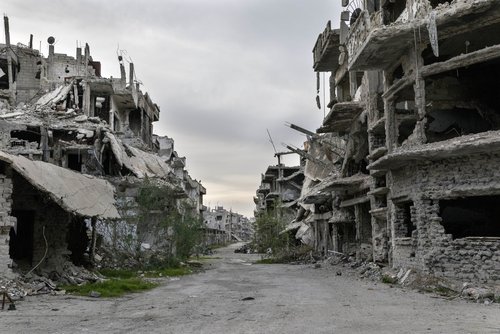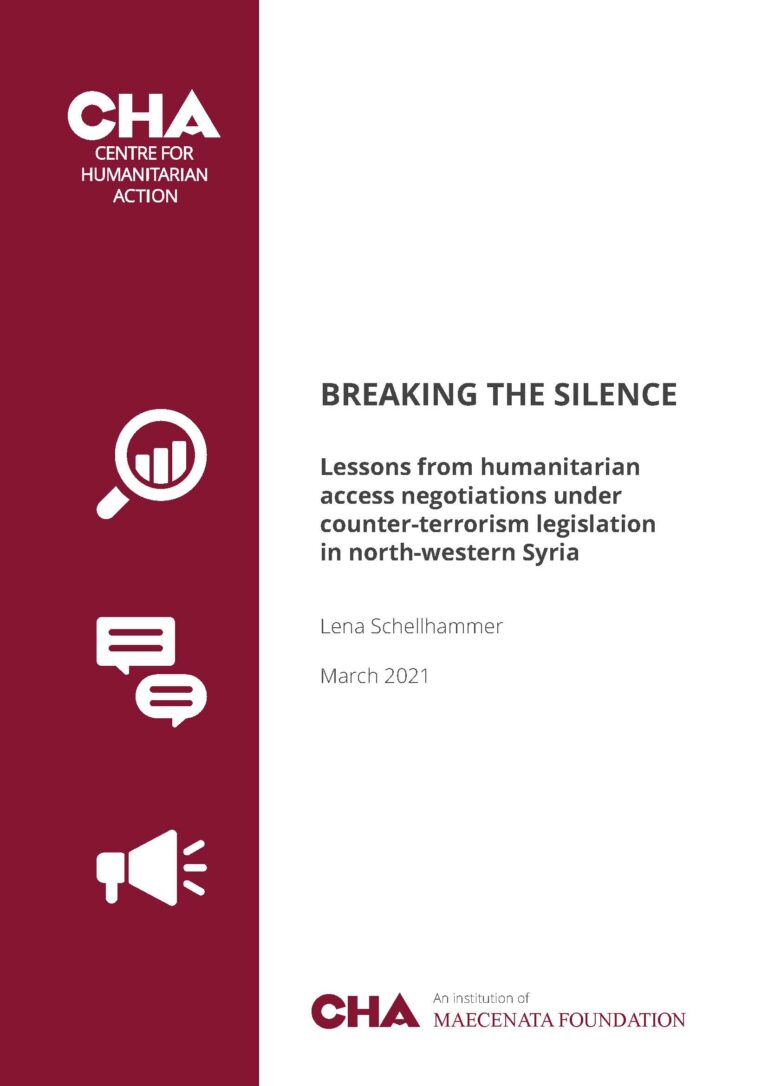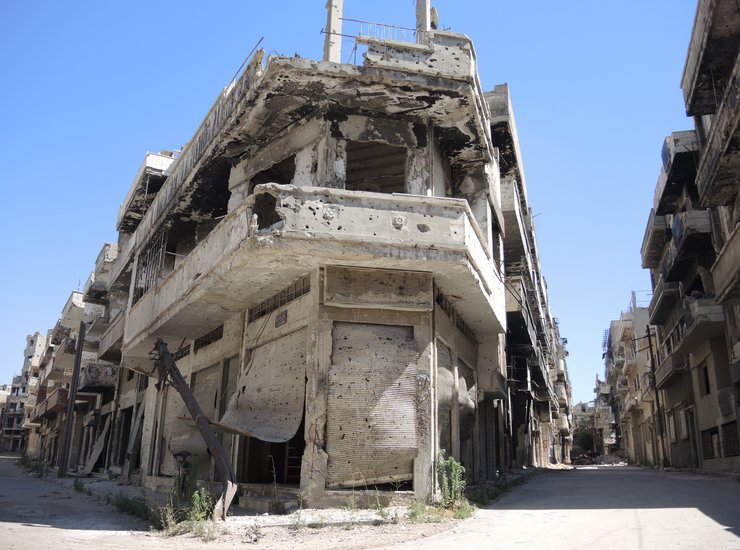In einem neuen CHA-Papier zeigt Lena Schellhammer, wie Verhandlungen um humanitären Zugang in Syrien ablaufen. Dabei geht sie insbesondere darauf ein, wie Maßnahmen zur Terrorismusbekämpfung die Verhandlungsposition von als terroristisch eingestuften Organisationen stärken und den Zugang von Hilfsorganisationen zu Menschen in Not schwächen können, zumal es unter den Helfer*innen an Austausch und Kommunikation mangelt.
Darum geht es – ein kurzer Abstract:
Access negotiations between humanitarian actors and Non-State-Armed Groups (NSAG) controlling a certain area are a necessary precondition for providing humanitarian assistance to affected populations in that area. However, in practice, there has only been minimal support for humanitarians doing so, and the topic is rarely openly discussed, especially when humanitarian access needs to be negotiated with designated “terrorist” groups that are sanctioned by counter-terrorism legislation. This working paper fills this transparency gap by show-casing the humanitarian access negotiations with Hay’at Tahrīr al-Shām (HTS) and its local governance institution, the Syrian Salvation Government (SSG), in north-western Syria. Based on a general analysis with the help of the micro-politics theory by Michel Crozier and Erhard Friedberg (1979) and the power-dependence theory by Richard M. Emerson (1962), this paper outlines the implications of counter-terrorism measures on humanitarian actors’ ability to pursue these negotiations. First and foremost, they trigger a culture of silence that results in a generally weakened humanitarian negotiation position. However, they also foster problematic humanitarian negotiation strategies like the involvement of intermediaries and the threat to suspend humanitarian assistance. The paper concludes that, besides the use of so-called power networks, especially an enhancement of information exchange and an open culture of debate on individual strategies to humanitarian negotiations, are the most promising solutions to overcome the dilemmas posed by counter-terrorism measures to humanitarian access negotiations.
—
Das Papier steht hier zum Download bereit.
Lena Schellhammer präsentiert und diskutiert ihr Papier in einem online CHA-Event am 11. März 2021 um 13-14:30 Uhr (CET – Berliner Zeit). Hier finden Sie mehr Informationen zum Event.
Lena Schellhammer arbeitet bei der lokalen NGO Maram Foundation for Relief and Development und hat Forschungserfahrung im Nordwesten Syriens.






